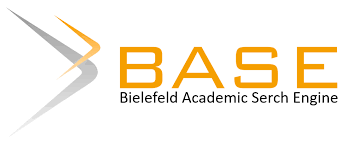RELEVANSI ANTARA PENILAIAN DAN PENGUKURAN DARI LABA AKUNTANSI KONVENSIONAL UNTUK AKUNTANSI SYARIAH
(1) Universitas Islam Kalimantan MAB Banjarmasin
(*) Corresponding Author
Sari
This is a library-comparative research of the profit mechanism assessment and measurement of two calculation methods, which is between conventional models and sharia models. The approaches used in this study consists of four; normative approach, sociological approach, historical approach; and philosophical approach. The four approaches used with the aim to reveal the method of calculating profits with the Islamic accounting system. The data obtained from the literature is then processed by making reductions and classifications to draw the relationships pattern between the data found and the core problem of this study. The processed data is then analyzed to find answers to the problems of this research.
This research finds that there are significant differences where the sharia system has more benefits. In Islamic accounting, the calculation model can encourage the economic growth of the people. Thus the element of sharia is clearly able to bring goodness and salvation (maslahah) in the life of mankind.
The results of this study are intended to provide public knowledge and understanding of the sharia method which not only brings worldly benefits but also avoids the harm that affects the lives of the world and the hereafter. This understanding is a means to realize happiness of life (al-falah) in the world and the hereafter.
Keywords:Relevance, Assessment, Measurement, Conventional, Accounting,Sharia.
Teks Lengkap:
PDFReferensi
Accounting And Auditing Organization For Islamic Financial Institutions. 1998. Statement of Financial Accounting For Islamic Banks and Financial Institution.
Adnan, Akhyar. 1999. Akuntansi Syari’ah : Sebuah Tinjauan. Pusat Pengkajian Bisnis dan Ekonomi Islam FE UB Malang dan Bank Indonesia Jakarta.
Ghofar, Abdul. 1999. Analisis, Implikasi, Pemikiran dan Penelitian Akuntansi Dari Paradigma Mainstream Barat dan Paradigma Islam Dalam kerangka Analisis Konsep Tao (Studi Kualitatif Komparataif Akuntansi Mainstream dan Akuntansi Alternatif Dalam Pembentukan Akuntansi humanis). FE-UB. Malang.
Hameed, Shahul. 2000. A Review of Income and Value Measurement concepts in Conventional Accounting Theory and Their Relevance To Islamic Accounting. http://www.islamic-finance.net.
Harahap, Sofyan Syafri. 1997. Akuntansi Islam. Bumi Aksara. Jakarta.
Teori Akuntansi. Raja Grafindo Persada. Jakarta.
Hendriksen, Eldon S., dan Michael F. Van Breda. 2000. Teori Akunting. Ter. Herman Wibowo. Penerbit Interaksara. Batam Centre.
Ikatan Akuntan Indonesia. 1994. Standar Akuntansi Keuangan. Penerbit Salemba Empat. Jakarta.
Indriantoro, Nur dan Bambang Supomo. 1999. Metodologi Penelitian Bisnis Untuk Akuntansi dan Manajemen. BPFE. Yogyakarta.
Mannan, M. Abdul. 1997. Teori dan Praktek Ekonomi Islam. Ter. M. Nastangin. PT. Dana Bahkti Wakaf. Yogyakarta.
Mas’udi, Masdar F. 1991. Agama Keadilan : Risalah Zakat (Pajak). Pustaka Firdaus. Jakarta.
Mathews, M. R. 1993. Socially Responsible Accounting. Chapman & Hall. London.
Meidawati, Neni. 1998. Akuntansi Zakat dan Pengelolaannya Di Perusahaan. JAAI Volume 2 No. 2, Desember 1998.
Moleong, Lexy J. 1998. Metode Penelitian Kualitatif. PT. Remaja Rosda karya. Bandung.
Muhadjir, Noeng. 1996. Metodologi Penelitian Kualitatif. Rake Sarasin. Yogyakarta.
Subiyanto, Ibnu. 1998. Metodologi Penelitian (Manajemen dan Akuntansi). UPP AMP YKPN. Yogyakarta.
Sukoharsono, Eko Ganis. 2000. Metodologi Penelitian Paradima Posmodernisme. CBIES FE UNIBRAW dan IAI-KAPd.
Taheri, Mohammad R. 2000. The Basic Principles of Islamic Economiy and Their Effects on Accounting Standards-Setting. http://www.islamic-finance.net.
Triyuwono, Iwan. 1997. Trust (Amanah), Management and Accounting Implications. Jurnal Riset Akuntansi Indonesia. Vol. 1 No. 1.
Shari’ate Organization and Accounting : The Reflections of Self Faith and knowledge. Departement of Accounting-Wolongong University. Australia.
Akuntansi dan Organisasi Syari’ah. LkiS. Yogyakarta.
Paradigma ilmu Pengetahuan dan Metodologi penelitian. CBIES FE Unibraw Malang dan IAI-KAPd.
Zaid, Omar Abdullah, and Garry Tibbits. 1999. The Islamic Perspective of Accounting Foundations And Principles. Proceeding of the Third International Conference on Accounting, Commerce and Finance : The Islamic Perspective. Jakarta-Indonesia.
Zarqa, Anas. 1976. Islamic Economics : An Approach to Human Welfare. Paper Presented at The first International conference On Islamic Economics. Jeddah.
DOI: http://dx.doi.org/10.31602/alsh.v4i2.1846
Refbacks
- Saat ini tidak ada refbacks.
Al-Ulum : Jurnal Ilmu Sosial dan Humaniora by https://ojs.uniska-bjm.ac.id/index.php/ALSH is licensed under is licensed under a Creative Commons Attribution-ShareAlike 4.0 International License.












